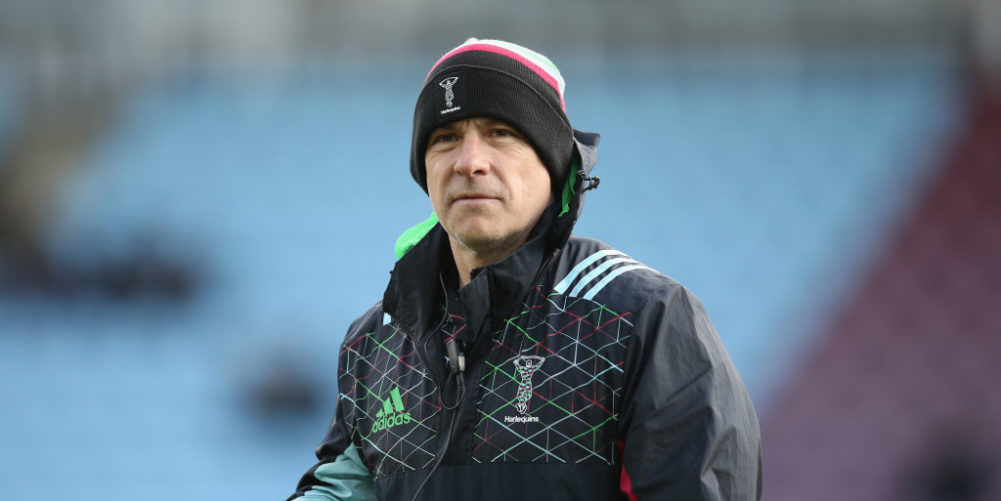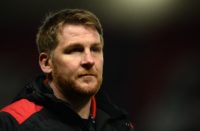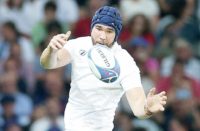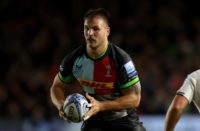After a decade at Harlequins in various roles, former head coach and academy guru Mark Mapletoft offers NEALE HARVEY his views on the game.
You've left Quins after ten years. Why now?
It's time to re-evaluate from a personal perspective and anybody who's been working in one organisation for that long would probably understand. Stepping away from the first team last year was great in terms of giving me a little bit of time to recalibrate because being in the firing line can become a bit mundane.
A number of high-profile coaches move around but I decided to stay at the club through the transition of Conor O'Shea to John Kingston and then Paul Gustard, but now's a good time to step away and do something different.
I will be staying in rugby, 100 per cent; I'm not moving from where I live and won't be commuting. Read into that what you will!
Despite many ups and downs, were you proud of your time at Quins?
Very proud. I had a pretty seamless transition from being involved with the RFU prior to joining Quins in 2010 because I'd already spent a lot of time in age group rugby with guys like Danny Care, George Lowe, Jordan Turner-Hall, Rory Clegg and others, so there was a conveyor belt of high-class kids coming through – and they were just the backs!
It was the perfect fit for me and winning the Premiership in 2012 was an obvious highlight. I still believe we were better in the two years after that, but at that time we were consistently losing our better players and we were clearly competing in the transfer market against teams who weren't adhering to the salary cap regulations.
It meant we were putting ourselves at a disadvantage because we ended up spending large parts of the season without England guys like Danny, Chris Robshaw, Joe Marler and Mike Brown, who were critical players to us, without necessarily having the depth to cover.
Do you regret the manner of John Kingston's departure in 2018?
The only disappointing time at Quins for me was the treatment John got from some fans after he took over from Conor O'Shea in 2016. That's sport, it happens, but it's not nice when somebody you're quite close to gets targeted as badly as he was.
But I've got too many fond memories of the place to be tainted by one episode and the last two years have allowed me to reflect as a coach on what I've done right and what I've done wrong to put me in a stronger position.
It's since been proved that Saracens were cheating the salary cap, with others implicated too. Does that rankle, knowing it lessened your chances of winning more silverware?
It was all conjecture at the time but now we know the truth. You ask your players to control what they can control, but that was clearly out of our control and Conor O'Shea managed expectations at Quins as well as anybody could at the time.
We took the view that we just had to get on with our own business but it was discussed among players and coaches from time to time and when you played certain teams you suspected what was going on. But it's done now and hopefully lessons have been learned.
Harlequins were themselves involved in an unfortunate incident (Bloodgate) a few years earlier so the key thing is not to make the same mistake again.
Do you expect changes around the salary cap recommended in the Lord Myners report to be implemented?
The whole sport is probably up for a recalibration right now.
In the mid-Nineties people went from earning zero in rugby to commanding substantial amounts of money and even back then people were asking if it would last? Could we keep paying players at that level? We're in a similar position now where salaries have gone through the roof and there are massive discrepancies between your marquee guys, some of whom are earning a million quid, and guys who are earning £40k.
Every club bar Exeter is losing money so if there is any good to come out of COVID-19, it's allowing us to have a good internal look at how the Premiership is doing things.
Whoever sets the agenda will want it to be to their personal preferences but hopefully it will also allow the game to flourish and not simply be at the behest of rich owners who dip into their pockets to the tune of £2m-£4m every year. That can't be viable in the long-term, regardless of personal ambition.
Some top players might say, ‘Shut up Tofty, it's a short career', and that's fair enough because it is a ridiculously physical game now and they put themselves through the ringer. But the bottom line is you have to live within your means and if the game's not making enough money to pay players the amounts they are demanding, it needs reeling in.
Do you think clubs reining in their spending will see more academy players breaking through?
Definitely – and Quins have always prided themselves on bringing through younger lads. The key word is ‘opportunity' and there have been a number of clubs in recent years who've had good lads but just not given them chances.
It's a two-edged sword, though, and the difficulty is if you're going to throw young players in, by the very nature of it being a really physical game now, they simply might not be ready at 18 or 19. In some cases they're not really ready until they're 22 or 23.
It's not a perfect science and there's no manual that says do this or that at a particular time. By its nature, rugby is a late-developing sport and yet we're dragging down the age at which we ask players to start playing senior rugby. The age has come down but the physical demands are going up, so surely we should be waiting until these players have reached their physical maturity. Guys are coming into academies at 18 and the pressure is straight on. Some are ready and some aren't, so the problem you have is keeping pathways open for the later developers, but that needs resources and resources cost money.
There's been recent criticism around the numbers of players dropping out of Premiership academies and effectively being lost to the game. Your response?
There are undoubtedly a lot more lads exiting the programmes at 18 rather than going into first-year academies, but I get a bit annoyed about the criticism at times because you look at how academic selection in this country is done and we don't bat an eyelid.
You apply to Oxford or Cambridge and get rejected, so what do you do? You end up at Leeds Beckett or Bristol or you get a job, but that's just life.
Life is all about disappointments and setbacks, but because it happens in a rugby context, we seem to get very protective about it. Grow up. Just because you get released, it doesn't mean your rugby career is over, it just means you've got to look at another pathway – and there are loads of them.
Could more be done with the Championship and National Leagues?
Of course, but the problem is who's investing in that? If you want to keep loads of plates spinning, you need someone to spin the plates. I think the Championship and universities are great avenues and there are many high-profile examples of players coming down that route, but the reality is it's not the major pathway that's identified and funding isn't driven towards it.
Another recent point of criticism is that Premiership clubs value size and physicality over skill. Your thoughts on that?
I've never been in a team environment where it has been as stark as saying you can't play unless you bulk-up. We often throw phrases like ‘gym monkeys' around but it's just misinformation because that is not the language that is used in a professional rugby environment.
These guys are athletes – incredibly strong, powerful athletes – who are prepared to play at the highest level, and if you're not prepared you're going to get hurt. We have to get these guys into a physical condition where they're not only able to play and train this week, they can do it for a month, for a year and over a ten or 12-year career.
You have to be in the best physical condition you can be and if you cut corners you'll be in trouble, so you have to prepare well and can't just roll in and have a fag and a beer before games like you used to be able to do.
It's all about athletic preparation and I'd be hugely disappointed if the gym monkey terminology was being bandied around in any organisation where I worked. There are lots of things around physical conditioning but the way we looked at things at Quins was that there were technical, tactical and psychological areas of performance as well and nothing was every looked at in isolation.
There might be some clubs who over-emphasise athletic performance but you have to see it as part of the bigger picture.
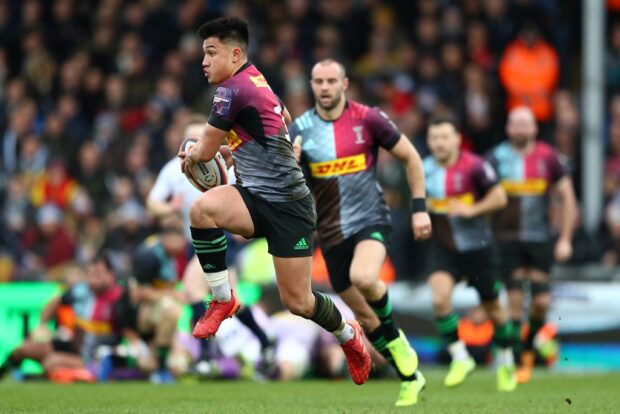
One smaller guy who's flourished in the Premiership is Quins' No.10 Marcus Smith. How pleased have you been with him since he arrived on the scene in 2017?
His durability has been phenomenal. We'd known about Marcus through his academy programmes and he'd kicked-on so we were very excited about bringing him into the first team group, but the intention was never for him to have played three seasons straight. It's fantastic whamt he's done in playing 79 games for Quins and I sincerely hope he can kick-on again now.
From being an England ‘apprentice,' Marcus has dropped out of Eddie Jones' squad. As a former fly-half yourself, do you hope he'll get another opportunity?
Eddie's the England coach and he picks who he sees fit. Marcus is probably past his apprenticeship now and if he's not currently deemed good enough to be Eddie's first or second choice fly-half, he obviously needs to keep developing and have a bit of luck with injury or selection.
Let's face it, Owen Farrell and George Ford are fantastic players and Marcus is still a very young athlete who's starting every week for a Premiership club.
Eddie's decided to have a look at Jacob Umaga, below, this year, which makes perfect sense to me, and Marcus is clearly one of a number of guys who can challenge, but he's probably not quite at the Farrell/Ford level of doing it consistently.
Are you confident Marcus can bridge that gap?
As long as he stays injury-free and on the right path, he's got every chance.
At 21, he's still really young and just because guys like Jonny Wilkinson, Ford and Farrell started Test rugby at 18 or 19, it doesn't make it the norm and others do get opportunities later on.
The one thing people wouldn't see with Marcus is just how professional he is; the guy wants to improve, he's diligent, resilient and has a great attitude. He's willing to push himself and try different things and his biggest challenge now is just to maintain what he's good at and keep improving the things that might expose him.
Back to Harlequins, what can the club improve upon?
There's been a transition of players and we probably haven't brought through as many of the younger lads as consistently as we have in the past. There've been exceptions like Marcus, and Gabriel Ibitoye and Cadan Murley have played more this year, but other than that there's not been a huge number of genuine academy players who've come through and played regularly since the Kyle Sinckler, James Chisholm, Jack Clifford group. You're starting to go back four or five years so there's work to be done there.
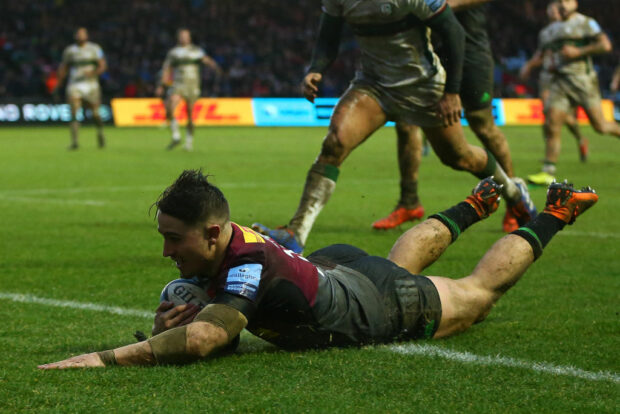
It can be a little bit about opportunity and that sometimes takes time. Good current examples are Sale and Northampton who've blooded a lot of young guys in their programmes who are now in their early to mid-twenties and are at an age where they can shape and influence games. It should be cyclical, though, and I'm sure the Quins academy will come again.
Is the congested English playing programme fit for purpose when it comes to developing talent?
We've got Premiership, Europe, Premiership Cup and Shield and the playing programme has been pretty much the same for five or six years now, so if the game's getting more physical but we've stayed the same, common sense would suggest that either squads need to be bigger or we should be playing fewer games.
If squads get bigger, where are those players coming from? And if those players are there, are they actually top drawer or a middle group there to make the numbers up?
In the Premiership Shield now, how many players are actually affiliated to the Premiership clubs as opposed to coming in from outside to play? I don't have the numbers, but there are a lot more ‘guest' players than there used to be five or six years ago, so we need to have discussions over how we structure the season.
I appreciate revenue is now massively important, but how do we grow the game while making sure our product – the players – continue to flourish?
We've got to look after the players, invest in their wellbeing and lives after rugby and their general health across the seasons.
NFL do it really well through centralised monitoring of training loads and there's a really good opportunity now to have a close look at what we're doing, whether it's for the global game or just what's best for us.
Sounds like you believe less is more and there should be fewer games?
Common sense would suggest there's a fine line between quality and quantity.
I want to see quality and surely the reason people go to watch top level sport is because it's better than the next level? But the way our season is currently structured means you sometimes lose momentum and there are so many matches; you leap from the Premiership to Europe to Cup and the overlapping internationals create further distractions, so you end up with a lot of mediocre games at various junctures of the season.
From a coaching perspective, I often remind myself that less is best and that's something that applies equally across the game – more is often not better.

